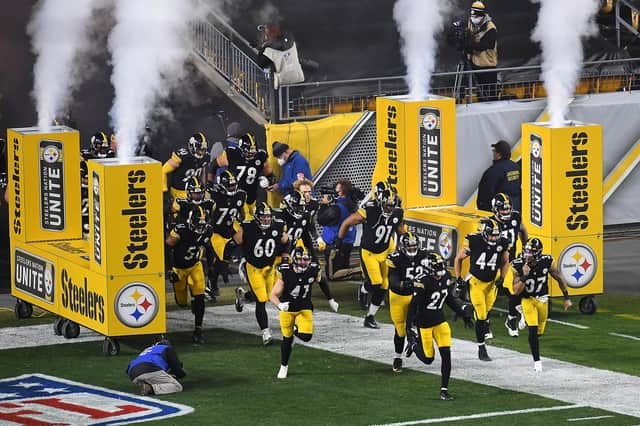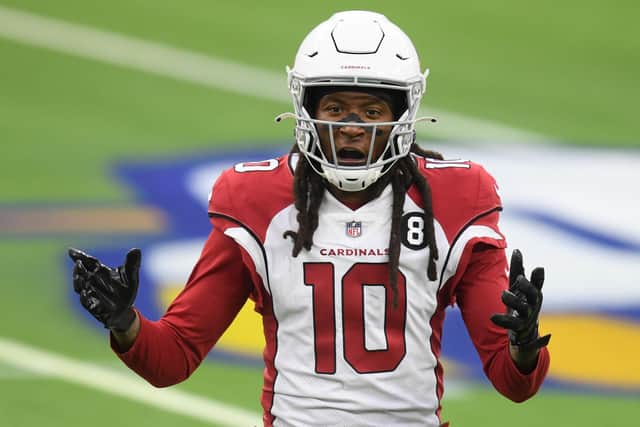NFL gets tough on Covid - and it’s the clubs who will pay


Twenty-seven of the 32 teams start their mandatory training camps later today, the first time these players will have been together under one roof, many of whom will have travelled from across the continent.
Despite the pandemic, the league managed to complete its full schedule last season and it did so with strict rules and testing.
Advertisement
Hide AdAdvertisement
Hide AdThere were postponements, teams had small breakouts and missed vital personnel, but that wasn't good enough for the league officials, and now they have laid the responsibility at the teams' feet.


Last season the Pittsburgh Steelers were unbeaten through week 12 but faltered late in the season. The argument can be made that the Steelers weren't that strong, that they'd had favourable luck, but still, what's clear is they were disadvantaged by their bye week being moved to week four.
The fixture changes were no fault of the Steelers. The Tennessee Titans had positive tests in their building, and the league decided to change the game to week seven, moving the Steelers’ week seven game to week eight, their original bye week.
Then, after positive tests in the Baltimore Ravens camp, the Steelers had their thanksgiving game moved to Wednesday, December 2. That meant that the Steelers played three games in 11 days due to no fault of their players.
Now, that was the worst that happened last season, and for the very first time, the NFL had a game take place on each of the seven days of the week, giving them a new media window. It was still 13 games that had to be rearranged.
Steelers fans will argue it ruined their season, and I agree they were disadvantaged.
So the boffins at the NFL headquarters in New York spent the last five months working out the most effective way to reduce any outbreaks this coming season.
They came back with some undoubtedly harsh new rules, especially in a year when the season is increased to 17 games.
Advertisement
Hide AdAdvertisement
Hide AdThe League Office decided that the team at fault for the outbreak was financially responsible. Moreover, should the game not get rearranged, that team will then be credited with a loss, while the team not at fault will get the win.
On the financial side, the players are paid per game, so the team with the positive test will have to pay the salaries and expenses of the second team, hitting the owners where it hurts most, their pockets.
Of course, supporters have been part of the decision-making process; after all, many plan their season’s travel months in advance, and with the fans returning to the stadia during the closing weeks of last season, they had to be factored in.
But the real driver behind the changes is simple - commercial interest. The NFL has a monopoly on Sundays with TV deals that rival the English Premier League. The TV networks have agreements and ad space sold well in advance, and the games being cancelled will cost them millions.
There has been a mixed response from a player perspective. Some, like Texans defensive end Jonathan Greenard, support the push for players to get vaccinated after losing his father to Covid during the winter.
But some have responded negatively to the pressure being applied by the NFL to get players vaccinated, with Arizona Cardinals receiver DeAndre Hopkins openly questioning his future in the league if he is forced to vaccinate in a now-deleted tweet.
What's clear is the NFL has laid down the law, and now it is up to the players to decide their path forward. The NFL will receive criticism for its decision and the pressure it is applying on players to get vaccinated, but ultimately it is learning from its past.
If the NFL had reacted to the first reports of long term damage from repeated head contact, then it would have avoided an extensive and expensive series of lawsuits.
Advertisement
Hide AdAdvertisement
Hide AdBy introducing these rules now, the league protects itself from accusations of putting players at risk, so maybe players pushing back should look twice before condemning the league.
A message from the Editor:
Thank you for reading this article. We're more reliant on your support than ever as the shift in consumer habits brought about by Coronavirus impacts our advertisers. If you haven't already, please consider supporting our trusted, fact-checked journalism by taking out a digital subscription
Comments
Want to join the conversation? Please or to comment on this article.
